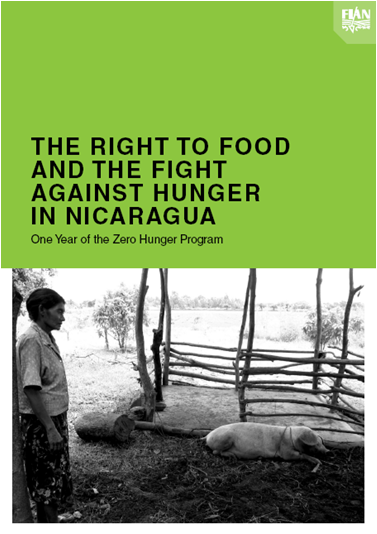2011-07-01 Cables reveal hidden sides of Nicaragua’s ‘Zero Hunger’: budget deficit from the very beginning due to lack of transparency
Hambre Cero (“Zero Hunger”) has been an ambitious social welfare program that president Ortega’s FSLN(Sandanista National Liberation Front) party declared in 2007. More than 3 years after that, cables released by WikiLeaks reveal hidden mechanisms and progression of the programs throughout 2007-2010.
Hambre Cero ‘veiled in secrecy’ in discriminatory selection of beneficiaries with no independent monitoring systems
Hambre Cero(“Zero Hunger”) is a state-led welfare program to help ‘eradicate poverty until 2012’ by providing Productive Parcels, which is a packet of livestock, goods, and services including various training needed to establish a self-supporting production of food in the poor areas. The government’s goal is to reach 75,000 families. And since the reported number of people living below the poverty line is 2,300,000 individuals in the country, the process of selecting beneficiaries is an important factor that should be impartial and transparent. However, recently released cables detail how the progression of planning the program and defining standards had been opaque since the first step.
07MANAGUA1783 particularly shows how the whole process from the selection of beneficiaries to the distribution of the Parcels excluded proficient NGOs and fallen into the hands of the controversial CPC (Councils of Citizen Powers), which was set up by President Ortega and linked to his FSLN party. According to the cable, five months after the February when dozens of Nicaraguan NGOs were invited by the government to discuss their roles, the implementing forces were restricted to ‘several NGOs, whose identities the government has refused to release’ with no official reasons. After the contentious selection of NGOs through hidden processes, president Ortega set up CPCs which are decisive entities in selecting beneficiaries and overall implementation in municipal level.

FIAN(FoodFirst Information and Action Network), an international NGO working for food rights, has visited Nicaragua to monitor the Zero Hunger program and published a report in 2008 under the title The Right to Food and The Fight Against Hunger in Nicaragua – One Year of the Zero Hunger Program, which is a scarce public report on the program published by independent(i.e. non-political) monitoring force. It confirmed the allegation of the U.S. ambassador on the secrecy and vagueness through the process and the politicized CPCs, denouncing that CPCs ‘openly maintain partiality’, which makes the process ‘depend a lot on local leaders and on their personal ethical position how the nomination of beneficiaries is being done’. According to the FIAN paper, the government at first used the participative structure as established by the Citizen Participation Law. Later, President Ortega knowingly dismissed the Law for Citizen Participation Nr. 475 by changing the structure to that of the CPCs which are closely linked to the FSLN party(p.16-17).
One year after that, 09MANAGUA1318 revealed that the government ended up not providing the then-promised ‘training’ facet, which is critical in terms of the program to nurture economically sustainable assistance, although the total budget allocated to Hambre Cero increased by 50%.
Cables reveal that the opaque process of Hambre Cero blocks foreign donations and loans, which takes 15-25% of national budget
Along with the controversial progression of the Hambre Cero, cables also detail how the opaque processes of the program deter foreign donations and the explicit percentage it takes in national budget.
According to 07MANAGUA1783, the Ortega government refused to release a detailed line-item budget of Hambre Cero at the beginning. After that, the cable reveals that the program failed to get the required budget which president Ortega requested to the National Assembly in 2007, receiving only one third of that. 07MANAGUA1933 states that the President pushed the promised disbursement of the donors, but the donors are mostly reluctant and some are thinking of cutting their financial support, mainly due to the lack of transparency:
Indeed donors are reluctant to disburse funds to the Sandinista government without sufficient performance guarantees or an acceptable economic development plan. They complain that the lack of a coherent economic roadmap and the veil of secrecy surrounding GON operations do not provide the necessary confidence that foreign assistance will be used well. … We understand some donors are considering discontinuing direct budget support.
This is a serious problem to Nicaragua, which is the second poorest country in the hemisphere and has 15-25% of the budget relying on foreign donations and loans. 08MANAGUA1489 states that donor support so far takes 15% of national budget, and 09MANAGUA163 states that including loans and debt relief, the ‘foreign assistance’ takes 25% of the budget of Nicaragua.